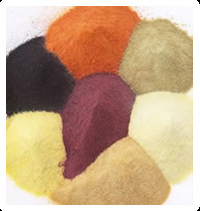Tangerine Purchase & Information

Alternative Names
Tangerine, Mandarin orange, Honey tangerine, Sunburst tangerine, Zipper-skin tangerine, Kid-glove orange, Satsuma mandarin
Scientific Name
Citrus tangerina
Why Do People Use Tangerine?
These days, the Citrus tangerina (tangerine) peel is utilized to dry up mucus in the lower and upper respiratory system. It is also efficient in liquefying secretions for expulsion. For the gastrointestinal system the tangerine peel is dried and ground to aid digestion, for stomach pain, to treat diarrhea, for nausea treatment and also for episodes of dyspepsia. The tangerine peel is very productive in the treatment of digestive problems because it naturally enhances the gastric juice secretion and it is also thought to helpful in relaxing the smooth muscles of the gastrointestinal tract. Some Chinese studies also confirm that the tangerine peel moves the body’s qi downward therefore it protect from vomiting and hiccups as well.
There are various studies that show that the high bioflavonoid content of the tangerine peel is effective in the empowering the epithelial cells making them resistant to cancer cells. However, this could be an aspect in defining the effect of tangerine peel supplements in the protection of cancer, but there is no definite data available in this regard.
There are some reports suggesting that tangerine peel is also effective in order to weight loss. It also lowers blood pressure and blood cholesterol and therefore ultimately results in weight loss.
Is It Safe To Use?
It should be avoided by individuals who are sensitive to Citrus tangerine. Its use may be related to severe skin irritation.
How Effective Is Tangerine?
No information available.
How Tangerine Works?
Citrus tangerina is a good source of vitamin C, folate and beta-carotene. They also contain small amount of potassium, magnesium and vitamins B1, B2 and B3. It also contains Lutein and Zeaxanthin. Tangerine oil, like all citrus oils, has limonene as its major constituent, but also alpha-pinene, myrcene, gamma-terpinene, citronellal, linalool, neral, neryl acetate, geranyl acetate, geraniol, thymol, and carvone.
What Are The Side Effects /Adverse Reactions of Tangerine?
Use of its essential oil may lead to bowel obstruction. Patients with gastrointestinal disorders should use it with caution. Also patients taking drug metabolized by cytochrome P450C3A4 should use it with caution.
How Tangerine Interacts With Other Herbs and Supplements?
Not known.
How Tangerine Interacts With Drugs?
Not known.
How Tangerine Interacts With Foods?
Not known.
How Tangerine Interacts With Lab Tests?
Not known.
How Tangerine Interacts With Diseases and Conditions?
Not known.
What Should Be the Dose/Administration of Tangerine?
No specific dose for tangerine.
General Certificate of Analysis (COA)
Specification sheet links below are a standard copy of the COA less the batch or lot number and manufactures dates. Specification sheet can be dated and should only be considered as a general information. Please contact and request an up to date COA if needed for specific updated information before placing order by filling out the contact form with product name and SKU number. If ordering quantities of twenty five kilos or more contact for availability.
